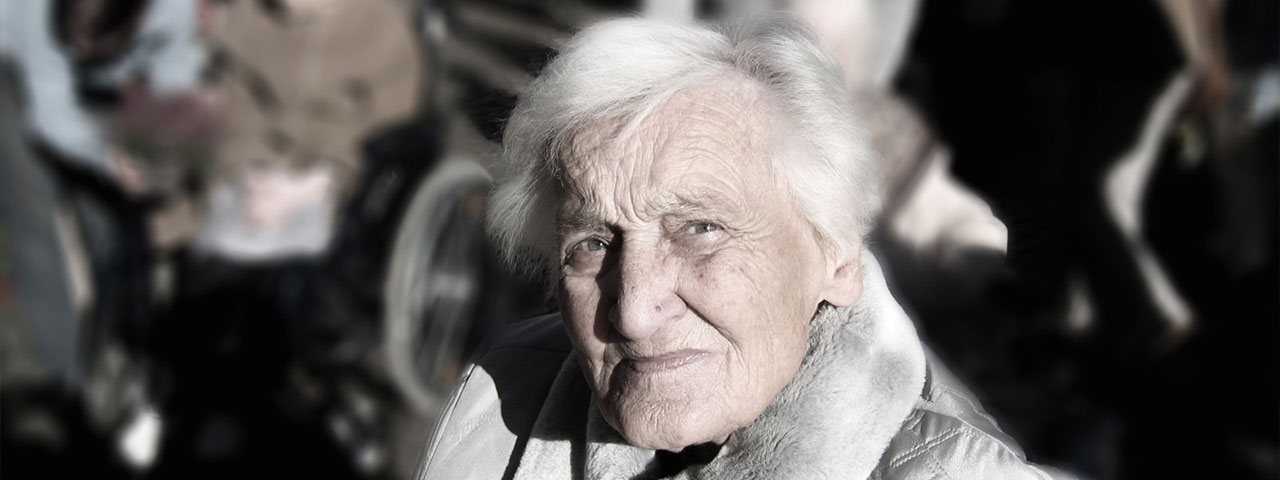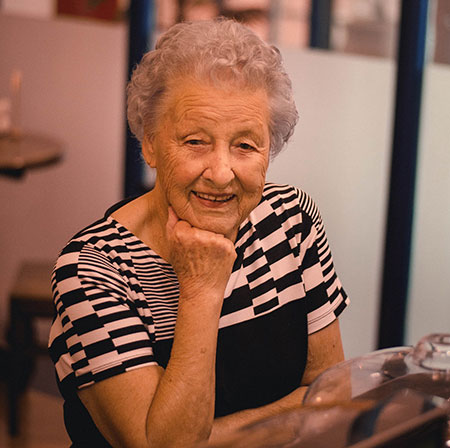
How Cataracts Cause Low Vision and How We Can Help
Does the world seem blurry or out of focus? Are you unable to see objects, images, or people in sharp detail like you used to? If you’re over 60 and you’ve noticed declining vision, it’s likely that cataracts are to blame.
What Are Cataracts? What Do You Do If Surgery Isn’t An Option?
A cataract is a condition that happens when the normally clear lens of the eye becomes clouded. When the lens is clouded, it distorts your normally clear vision. It’s as if you’re looking through a dirty window and can’t really see what’s outside. A person may develop a cataract in one eye, or it may affect both eyes.
What Causes Cataracts?
 Cataracts typically develop as part of the natural aging process. The lens of your eye is made up of water and proteins, which can clump together as you age. When that happens, the lens becomes cloudy, disrupting your previously clear vision.
Cataracts typically develop as part of the natural aging process. The lens of your eye is made up of water and proteins, which can clump together as you age. When that happens, the lens becomes cloudy, disrupting your previously clear vision.
Other causes include eye injuries, eye diseases like glaucoma or diabetes, birth defects, or side effects from eye surgery.
Treatment for Cataracts
For patients with cataracts caused by aging, surgery is usually the most common treatment method. Cataract surgery involves the gentle removal of the cataract and a replacement lens, known as an artificial intraocular lens, or IOL.
But surgery isn’t always an option. If your cataracts are from a congenital birth defect or eye disease, there are other effective, less invasive solutions. Low Vision Doctor Name can recommend a number of low vision devices and glasses to enhance your remaining vision and ultimately, improve your quality of life.
Cataracts and Low Vision?
Cataracts are one of the main causes of vision loss in people over the age of 45. By the time they reach 80, more than half will have already developed cataracts. The condition is a gradual one, so symptoms may not even be noticed in the beginning. Over time, as the lens loses more clarity, your vision deteriorates, leading to partial or even complete vision loss.
How a Low Vision Doctor Can Help
At the Low Vision Center, we help patients from all over the CITY 1, CITY 2, CITY 3, and CITY 4 areas. Our goal is to help you do the things you enjoy doing as much as possible. If cataracts have made it difficult to drive, read books, watch TV, go shopping, or spend time with friends, talk to our low vision eye doctor.
Low Vision Doctor Name can recommend a number of low vision aids, devices or glasses that can help those with vision loss from Cataracts regain visual activity. Go back to doing the things you want to do. Schedule a low vision consultation today to see how we can help.
Low Vision Devices and Glasses for Cataracts
Depending on how mild or severe your cataracts are, your personal lifestyle and everyday activities, low vision devices and glasses can help maximize your remaining vision. We carry a variety of bioptic telescopic glasses, E-Scoop glasses, magnifiers, and other devices to optimize your vision, even with cataracts.
Magnifying spectacles are worn just like traditional eyeglasses and can help you see words on a page, so you can indulge your love of reading. Portable electronic magnifiers go with you, so you can magnify words on a medicine bottle or bank statement, and wearable magnifiers can help you recognize faces in detail. You can read more about the low vision aids and devices we offer here. Talk to Low Vision Doctor Name to help determine which devices or glasses are right for you.
Don’t worry, there is hope! Contact our office and let us help you continue living an independent life and get you back to doing the things you love.
Reach out to the Low Vision Center today.